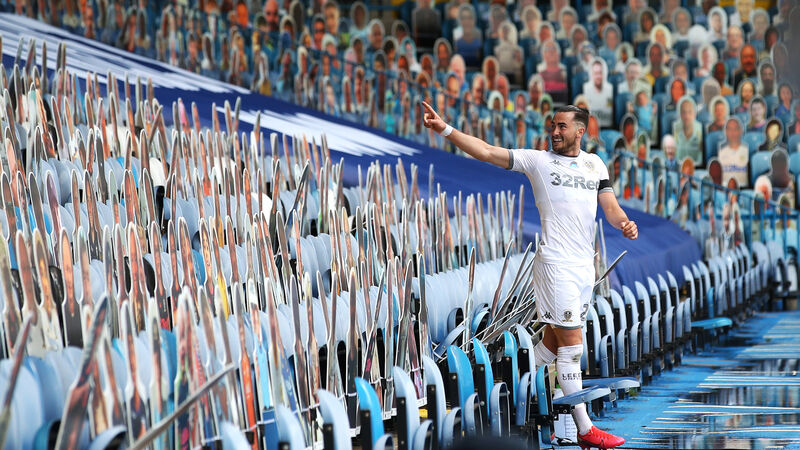Tommy Martin: Will the Premier League still feel like a must-see when no-one is watching?

Leeds United's Jack Harrison celebrates amongst the cardboard cutouts of fans at Elland Road. Photo: PA
Leeds United are back in the Premier League, so that must mean something.
You always remember Leeds, probably because their visits to English football’s VVIP hot tub party are short but highly eventful. They make their mark.









